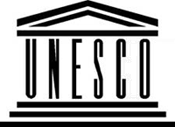UNESCO Convenes International Media Literacy Conference in Toulouse
|
|
Report prepared by Elizabeth Thoman, executive director Center for Media and Values, Los Angeles, CA
Overview of the Conference
In the summer of 1990, 180 delegates from 40 countries convened in Toulouse, France for an international colloquy on the future of media education worldwide. The conference was sponsored by UNESCO, the British Film Institute, and CLEMI (Centre de Liaison de L'Enseignement et des Moyen D'Information).
Most participants were media education teachers or national staff officials from European countries where media education is an established and well-developed field in both secondary and elementary public school systems. A number from Europe and Australia teach media studies theory or practice at teacher-training colleges. 24 participants from Third World countries were funded by UNESCO to attend.
U.S. delegates included Ralph Amelio, a high school film teacher from Chicago, Debbie Demick, a PhD candidate in education at U. of Arizona, Bob Muffaletto, active in International Visual Literacy Asso; Kathleen Tyner, exec. director, Strategies for Media Literacy, San Francisco and Elizabeth Thoman, executive. director, Center for Media and Values, Los Angeles. We were not an "official" team or delegation but rather five individuals whose familiarity with the idea of media literacy stimulated them to make the trip and spend the time.
Without a doubt the conference was an unprecedented opportunity to learn about the development of media literacy around the world and its nature and status in different countries. Coming just as media literacy was beginning to burst forth on the US educational scene, it provided an invaluable overview of both the theory and practice of media literacy. The following notes capture the most significant learnings and provide a platform for reflections on how the Los Angeles-based Center for Media and Values (later to become the Center for Media Literacy) might develop a plan of action for building media literacy in the US.
Key Learnings
- Definition of terms:
There is still much discussion on whether the correct term is "media education," "media awareness," or "media literacy." It feels like "media literacy" will win out because of the mental association with "literacy" meaning the ability to "read" and process information in order to participate fully in society. However "media education" is firmly entrenched in England, Australia and other countries pioneering the field. The term "media studies" is also used, particularly in Australia.
But whatever it is called, the concept of "media literacy" incorporates both knowledge of the structure, economy and function of mass media systems in society as well as the analytical skills to "read" both the aesthetic and ideological content of mass media messages. - Urgency:
In the past 50 years, modern society has passed from an age of linguistic literacy to an age of electronic literacy. Therefore media literacy is not a luxury but a necessity in contemporary times.
Indeed, how can anyone become a fully functioning citizen in a democratic society if he/she is manipulated by commercial media? What is at stake really is the future of democracy. - Methodology:
In the past 20-30 years, we have grown in our understanding of how mass media works in society and how people interact and process media messages.- In the 50's-60's we understood the viewer as a "tabula rasa"



